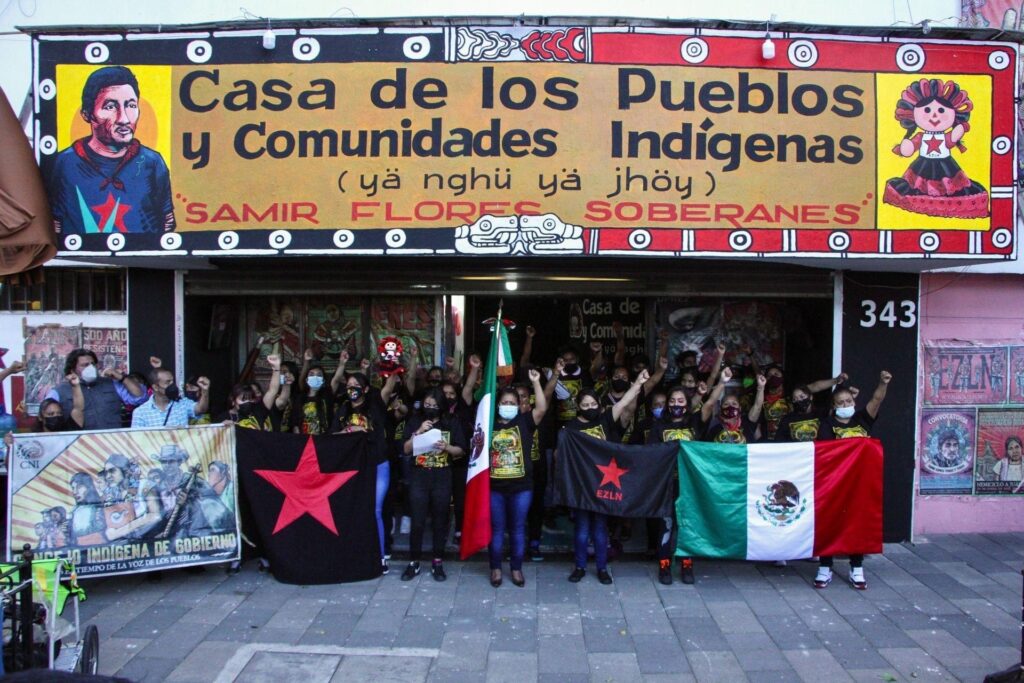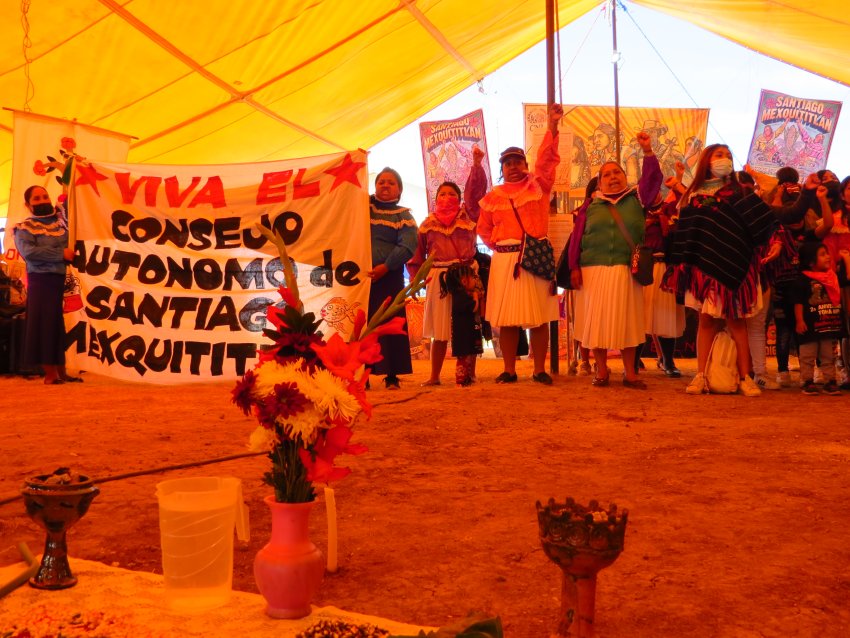
“Samir Flores Soberanes House of the Peoples and Indigenous Communities”.
Raúl Romero*
In October 2016, the National Indigenous Congress (CNI) celebrated its fifth congress and 20 years of existence. Gathered at the Universidad de la Tierra, in San Cristóbal de las Casas, Chiapas, the delegates to the congress met to analyze the situation of their peoples, their organizations and the CNI itself. In this context, the Zapatista Army of National Liberation (EZLN) shared its diagnosis. The war against the native peoples had extended to other social sectors: “The war that we have been suffering for a long time as native peoples, has now reached you, now it is in your streets, in your homes, in your schools, in your workplaces.” For that reason, they argued, people no longer pay attention to the massacres and deaths of indigenous peoples as they had done before: Our pains are now just one more among many others. And, although the pain is spreading and deepening, we are more alone than ever. We are going to be fewer and fewer.
At the end of 2018, the peoples organized around the CNI faced new challenges and threats. Defending their territories from megaprojects such as the misnamed Mayan Train, the Interoceanic Corridor, the Morelos Integral Project and others, in the new national political scenario, earned them being branded as part of the conservative bloc. Mediatically, the narratives from above tried to discredit their struggles and erase their long history of resistance.
These peoples suffered a painful blow in 2019 with the murder of Samir Flores, a territorial defender and opponent of the Morelos Integral Project. Samir would not be the only territorial defender linked to the CNI murdered during the current six-year term. In much of the country, the murder and disappearance of community organizers continues.
With the covid-19 pandemic, the CNI peoples faced a new challenge, to protect themselves from the virus, while defending their territories from the mega-projects that did not stop. Caring for life in a broad sense: personal life, the life of their peoples and organizations, and the life of humanity and the planet. Taking care of life in the face of the pandemic and the attacks of organized crime, defending territories, resisting delegitimizing narratives and the processes of co-optation and disarticulation. A complicated scenario.
Guided by the principles of not surrendering, not selling out and not betraying, the peoples of the CNI continued to weave from below, in silence, invisibilized in a media agenda that only knows about “conservatives” and “authoritarians,” and where there is no room for those who go beyond the established margins, the mediatically “attainable” and politically “acceptable.”

In this journey, these peoples are building national and international initiatives, dialoguing with others, indigenous and otherwise, who observe the limitations and contradictions of the current government and the planetary threats. This is the case of the second National Assembly for Water and Life, which supported the demand for the presentation alive of Ricardo Lagunes and Antonio Díaz. The assembly brought together members of 125 collectives, organizations, networks, indigenous peoples and communities from 18 Mexican states and six other countries. Among other points, the assembly diagnosed the current moment as a planetary war characterized by: “a) the plundering, extraction, trafficking, sale and exploitation of water; b) the extermination of our forests, rivers, seas, minerals, flora, fauna, cultural and linguistic richness and diversity; c) the imposition of mega-projects such as the Mayan Train, the Interoceanic Corridor and the Morelos Integral Project, and d) by all means they seek to end the autonomy of us indigenous peoples.”
Moreover, in an effort to continue with the analysis and articulation, the CNI convened its National Assembly, which posed two main questions: how are we doing? and what’s next? From its invitation, the CNI also diagnosed a war: “as humanity and indigenous peoples, we are living a war of capitalist and patriarchal extermination against life on the planet, its plants, jungles, forests, rivers, mountains, plains, peoples and entire cultures for the ambition of extractivist capitalism.” And they clarified: “the indigenous peoples of the CNI and beyond, are resisting and fighting with dignity and integrity to defend Mother Earth, and we are not willing to become extinct or let them destroy our common home.”
The initiatives do not stop there. In the coming weeks the caravan and the international meeting El Sur Resiste! will take place, with the objective of building a broad articulation to resist against the interconnected Mayan Train-Interoceanic Corridor megaproject, an initiative that has a strong internationalist vocation.
In a complicated national and international scenario, the originary peoples organized in the CNI continue weaving, building horizons, insisting on the global and anti-capitalist character of the struggle. Accustomed to resisting, the people walk knowing that the path is made by walking.
* Sociologist
This article was published in La Jornada on March 22, 2023. https://www.jornada.com.mx/notas/2023/03/22/politica/haciendo-camino-al-andar-20230322
English translation by Schools for Chiapas.
